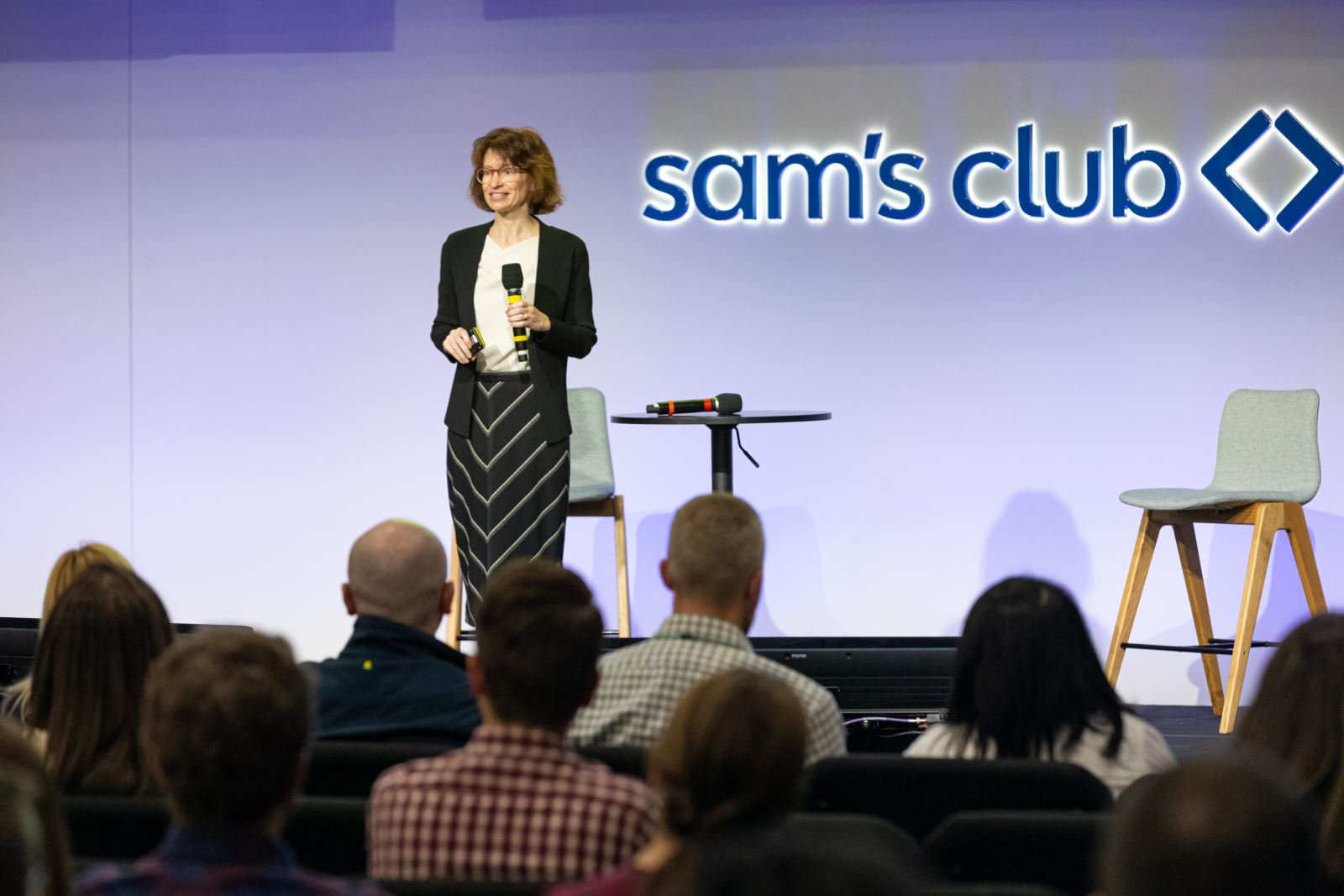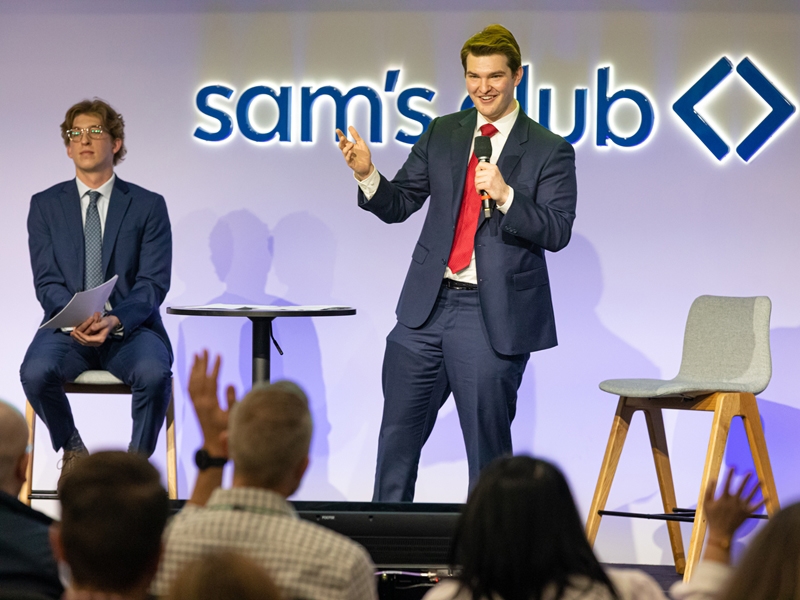Law professor Sara Gosman, two law students and a recent graduate of the Sam M. Walton College of Business spoke to Sam’s Club employees about renewable energy and electric vehicles at a recent company-wide “regeneration” learning event at the corporate headquarters in Bentonville.
Gosman, who teaches energy and environmental law, provided an overview of renewable energy. She explained the difference between renewable and non-renewable energy sources, the former being those that can be naturally replenished, that is, used and then released to the environment to be used again. These include wind, solar, hydropower, biomass and geothermal energy. Non-renewable energy sources, such as coal, natural gas and oil, cannot be reused.
Rapid technological advances over the past 20 years and a greater consciousness about human impact on the environment have accelerated the development of renewable energy and expanded business opportunities, Gosman said. Renewable energy sources, primarily wind power, now constitute 20% of all electricity generation, and renewable energy is on track to be the largest source of energy by 2035. Solar is expected to be the source of half of the energy supply by 2050.
Third-year law students Houston Downes and Hunter Simmons discussed the economic, sustainability, community and ethics issues surrounding electric vehicles and battery charging.
Downes, who wrote a law review comment on lithium-ion batteries with Gosman as an adviser, focused on the technology and resources needed for electric vehicles. Though clearly the future of transportation – Downes described this moment in the transition from gasoline to electric transportation as the “edge of seismic change” – electric vehicles present their own problems, specifically energy storage via lithium-ion batteries and the need for a stable supply chain over the life cycle of batteries, including greater emphasis on recycling and responsible mining of minerals.
Simmons, a student in Gosman’s energy law class, discussed cultural changes because of this transition. To support the demand for electric vehicles, he said, communities will need to offer more hubs where people can work or interact while charging their vehicle, similar to public spaces and some businesses that offer free Wi-Fi.
Reed Ostner, a new member of the replenishment team at Sam’s Club and a recent graduate of Walton College, talked about his passion for sustainability and how it influenced his decision to seek employment at Sam’s.
The event was held to educate and draw attention to Walmart’s commitment to becoming a regenerative company. The world’s largest retailer is seeking to achieve zero carbon emissions by 2040 and to rely solely on renewable energy for its global operations by 2035. Along with the Walmart Foundation, Walmart also has a goal of protecting, managing or restoring at least 50 million acres of land and 1 million square miles of ocean by 2030.
The session was facilitated by the regeneration team at Sam’s Club in collaboration with Molly Jensen, clinical associate professor in Walton College’s Department of Marketing. Jensen teaches classes in nonprofit marketing, statistics and analytics. Many of her students have gone on to work at Walmart and Sam’s Club.
About the University of Arkansas: As Arkansas' flagship institution, the U of A provides an internationally competitive education in more than 200 academic programs. Founded in 1871, the U of A contributes more than $2.2 billion to Arkansas’ economy through the teaching of new knowledge and skills, entrepreneurship and job development, discovery through research and creative activity while also providing training for professional disciplines. The Carnegie Foundation classifies the U of A among the few U.S. colleges and universities with the highest level of research activity. U.S. News & World Report ranks the U of A among the top public universities in the nation. See how the U of A works to build a better world at Arkansas Research News.

Sara Gosman speaking to Sam’s Club employees.
Topics
Contacts
Sara Gosman, associate professor of law
School of Law
479-575-3886,
Molly Jensen, clinical associate professor of marketing
Sam M. Walton College of Business
479-575-5503,
Matt McGowan, science and research communications officer
University Relations
479-575-4246,
